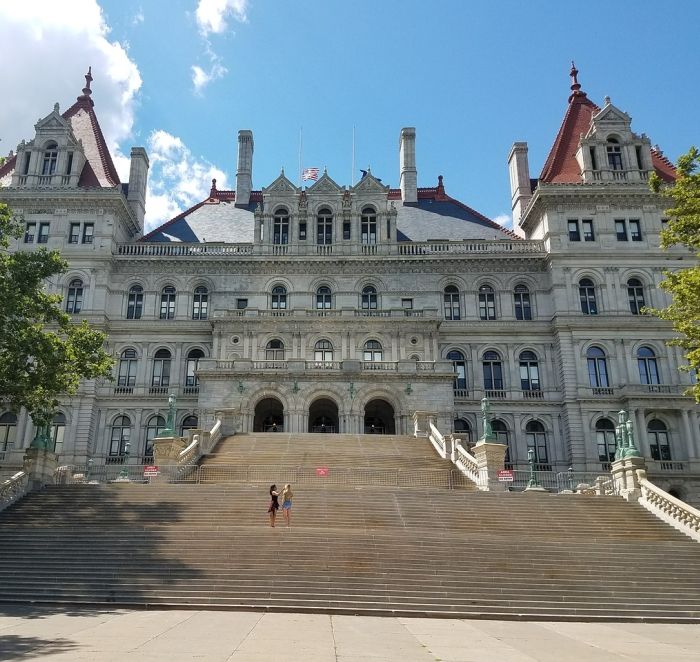Post-COVID Court Practices focus of final Anderson Program of 2023
The fourth and final program of the 2023 Warren M. Anderson Legislative Series will focus on the evolving practices and procedures in New York’s court system during COVID-19, as well as promising strategies for the future.
The Government Law Center at Albany Law School will host the virtual program, “The New York Courts During COVID-19 and Beyond,” on Tuesday, May 23, from noon to 1 p.m.
The series is free of charge and open to the public, but registration is required.
Continuing legal education (CLE) professional practice credit is available for attorneys who attend.
The discussion will be moderated by the Hon. Leslie E. Stein (ret.) ’81, Director of the Government Law Center and former Associate Judge of the New York State Court of Appeals, with panelists:
- Jessica Cherry, Esq. ’12, Deputy Counsel for the New York State Unified Court System, Office of Court Administration
- Hon. Craig J. Doran ’89, Justice of the New York Supreme Court; Chair of the Commission to Reimagine New York's Courts’ Pandemic Practices Working Group
- Hon. Fern Fisher (ret.), Call-In Center Attorney at Legal Hand, Visiting Professor of Law, and Special Assistant to the Dean of Social Justice Initiatives at the Maurice A. Deane School of Law at Hofstra University; Former Deputy Chief Administrative Judge of the New York City Courts
This event follows previous programs on environmentally sustainable housing, the Lieutenant Governor’s role in New York government that featured former New York State Governor David A. Paterson, and the powers of New York’s Governor in times of emergency.
Previous programs can be viewed at albanylaw.edu/government-law-center/warren-m-anderson-series.
The series is named in honor of Warren M. Anderson ’40 who served in the New York State Senate for 36 years, working with six governors. He was the longest-serving majority leader of the Senate, holding that position from 1973 to 1988.
Anderson was best known for working to bail out New York City from its fiscal crisis in the mid-1970s. He was also responsible for establishing the state’s Tuition Assistance Program, which helped fund the education of thousands of New York college students.





